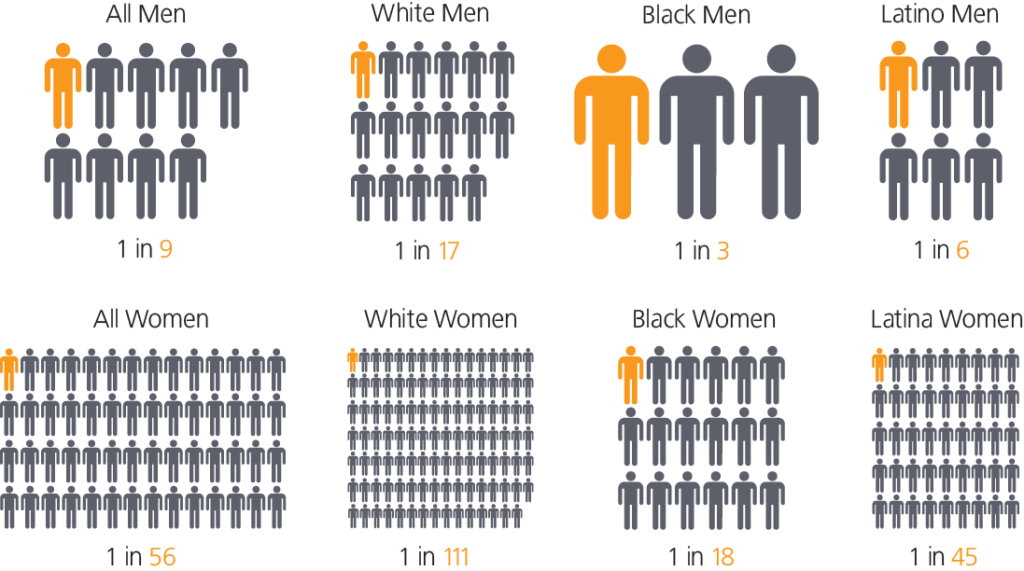Reimagining (Defunding) the Police
July 15, 2020
Thank God for social media. For as long as anyone can remember, police were known to treat America’s Black citizens with such disrespect and violence and parents openly discussed the need for “the talk” with their kids. “The talk” was perceived as necessary to increase the likelihood that any interaction with the police did not end in death or serious injury. Regardless of how non-threatening during traffic stops and other interactions, far too many Black people lost their lives at the hands of police. Say his name: George Floyd.
On July 13, 2020, video surfaced of a 17-year old Black youth face down on the ground, his hands behind his back being handcuffed, with a white City of Baton Rouge police officer’s knee on his neck. The mayor promises an investigation, the chief of police a press conference. Thankfully, no one was hurt. Physically, that is.
The news story was a familiar one. Police engage a vehicle driven by a young Black man, whose first call is to his mother. Mom tells her son not to stop the car until he is at a place with lots of witnesses. Why? So that police don’t hurt her son. And if they do, witnesses can tell the world what happened. How did we come to this? How is this ok?
Some, when they hear “defund the police,” their response is “no way” or “that’s absurd,”because “if we defund the police, who do we call when there’s a crime?”
But in an America where, according to The Sentencing Project, 1 in 3 Black men born in 2001 can expect to go to prison in their lifetime, it is time to seriously examine the question.

The heart of this idea is an opportunity to reimagine what kind of society we want and deserve. What would society look like if we held police to a higher standard?What would our communities feel like if police were of us, our partners in creating safer streets, and not occupiers fashioned after the military?
Understanding the root of the grievances that spurned calls to defund the police starts with understanding what’s happening in law enforcement and the prison systems today, why they’re not working, and the data that support that claim.
Over several decades of research and study, criminologists have found weak relationships between the things we’ve been doing to curb crime – spending more money on law enforcement, imprisoning more people, and increasing the severity of punishments – and the impact on actual crime.
Marginalized communities experience this firsthand, and criminologists back up their lived experience with hard data.Despite our efforts to support law enforcement with more and more funding and crack down on crime with harsher punishments, crime still happens at largely the same rate. Moreover, these outsized investments and harsher punishments unfairly impact Black and Brown communities in ways that far exceed their crime rates.
Over the past 50 years, public institutions like housing, health care, and education have been steadily defunded by budget cuts. In that same time, law enforcement budgets have remained the same or enlarged, sometimes by nearly 30 percent.
This simultaneous defunding of public institutions that help build stable communities and increased funding for public institutions that punish unstable communities led to calls for a rethinking of how we spend our money – calls to defund the police.
What Does Defunding the Police Look Like?
Defunding the police means cutting money from overinflated police budgets and reinvesting that money into programs that help communities thrive – non-police forms of public safety like mental health services, housing, education, and other community programs.
Even some police departments can attest to the outsized reliance our communities place on police. Former Dallas Police Chief David Brown stated in 2016, “We’re asking cops to do too much in this country. Every societal failure, we put it off on the cops to solve. Not enough mental health funding, let the cops handle it. … Here in Dallas we got a loose dog problem; let’s have the cops chase loose dogs. Schools fail, let’s give it to the cops. … That’s too much to ask. Policing was never meant to solve all those problems.”
Defunding the police simply means removing tasks (and attendant funding) from law enforcement’s plate and reallocating them to better serve the American people. It may sound radical, but cities and states reallocate budgets every year. They can certainly do so for this moral imperative. Now.
What You Can Do
The Fair Fight Initiative advocates for a fair and equitable criminal justice system. With the support of donations, the Fair Fight Initiative provides support for victims and their families to bring litigation to all forms of criminal injustice, especially for those mistreated by law enforcement. The Fair Fight Initiative also uses advocacy to bring awareness to these injustices.
A donation to the Fair Fight Initiative helps us fight to create a justice system that is fair for all.
Please submit an application if you feel you or a loved one has been the victim of mistreatment or inhumane conditions in the legal system. Accepted cases will be supported with fundraising, reducing or eliminating costs to you. Fair Fight Initiative receives many applications, and responses may take many weeks.
David Utter
